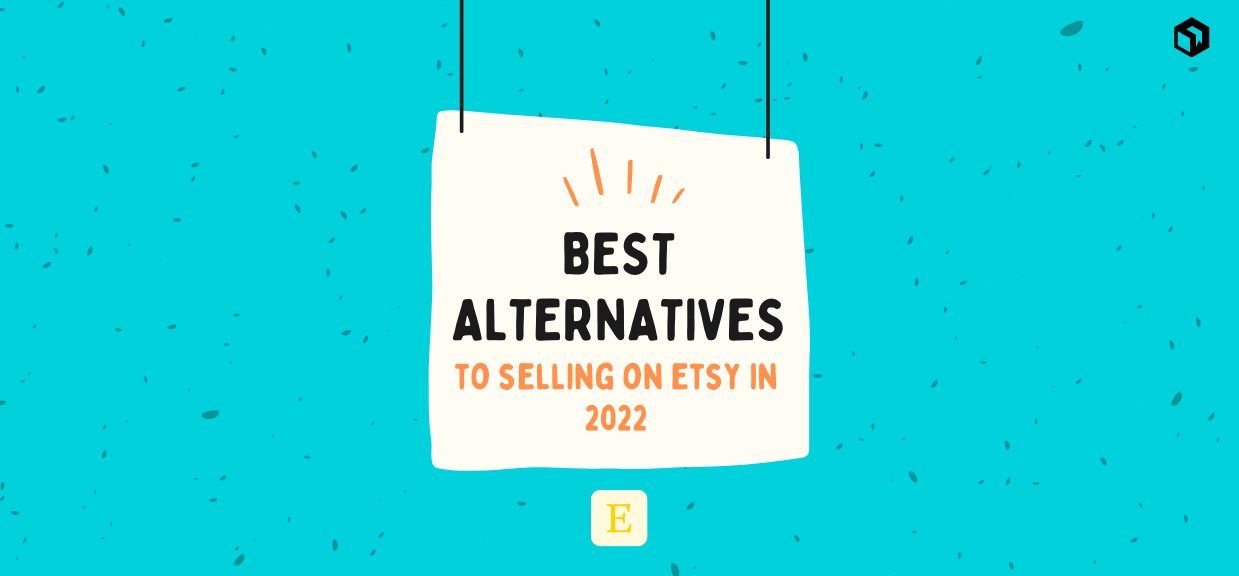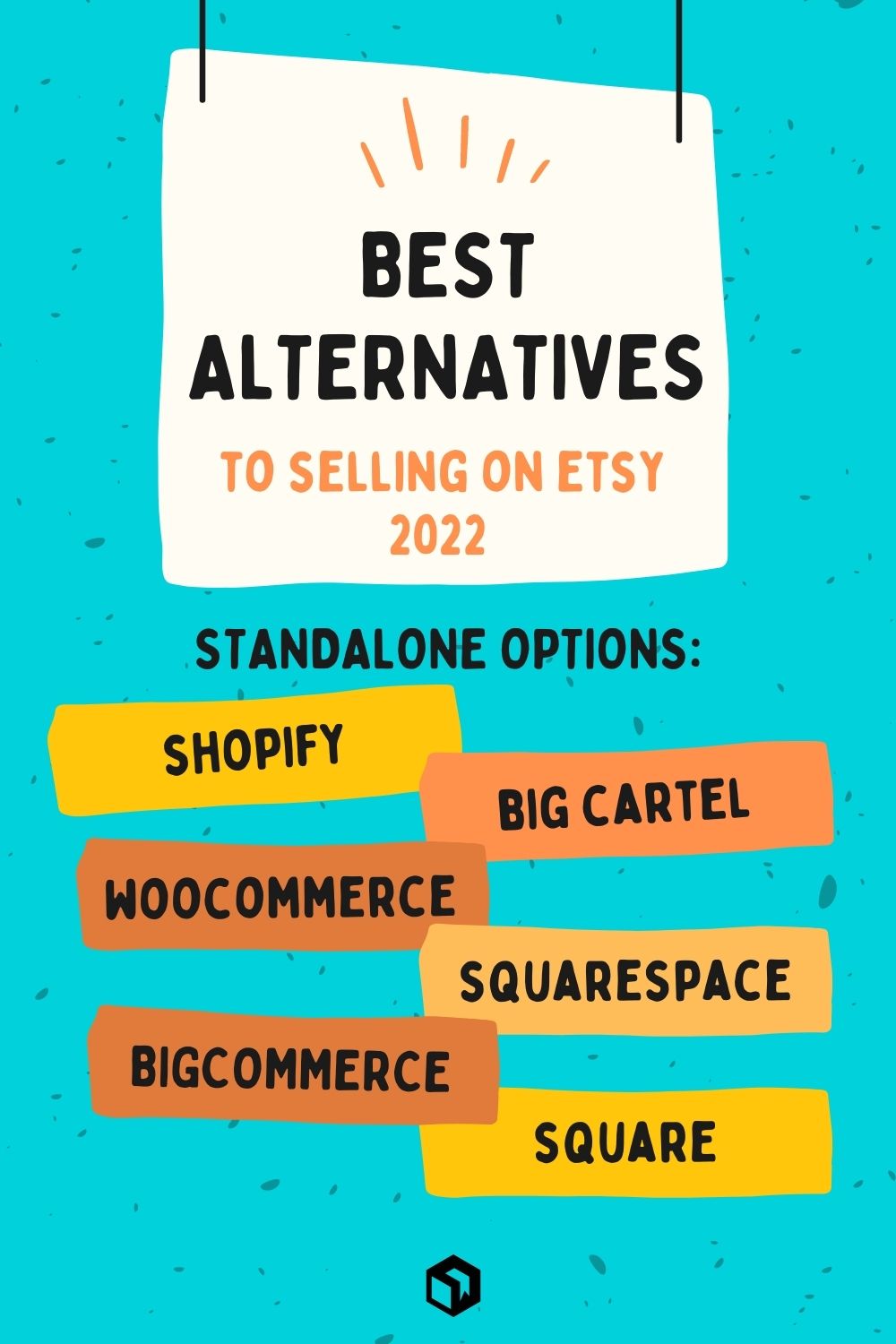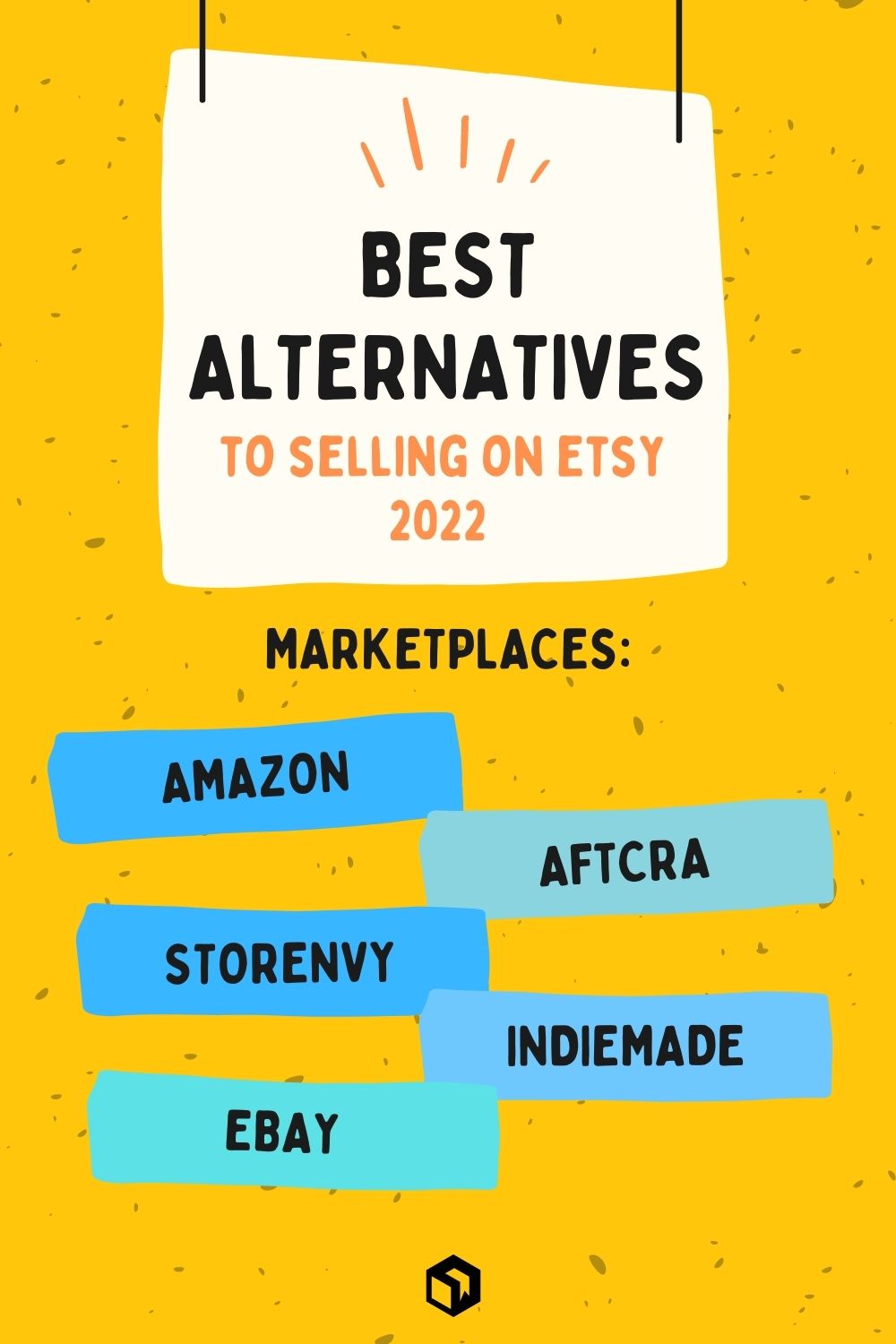Alternatives to selling on Etsy
We show you the best alternatives to selling on Etsy in 2025.

Etsy’s not the only craft selling platform in the biz – it’s time to expand with some alternatives!
If you’re a crafter or an owner of a small business that sells handmade goods, it’s likely that you’re selling on Etsy. Etsy is an online marketplace catering to small sellers, usually of handmade or vintage items. Many craft sellers are dependent on the Etsy platform as their sole source of business.
However, some sellers are questioning their singular reliance on Etsy, as the platform has recently introduced a 1.5% increase in their transaction fees.
Etsy also charges a fee on transactions that result from their offsite ad placement program.
Ready to take your Etsy store to the next level?
Discover how Craftybase is the Etsy inventory software you've been missing out on: track raw materials and product stock, COGS, pricing and much more. It's your new production central.
Separate and aside from the fees Etsy charges to benefit from their services, it’s important for sellers to have a diversified flow of income sources. Etsy is an excellent way to reach new customers that may otherwise have never found you, so closing up shop isn’t a great idea. However, opening up new channels for you to sell your goods is a sustainable way to grow your business and increase your revenue flow. There are a number of alternative websites like Etsy that are a great place to start.
If you’re curious about some of the best alternatives to selling on Etsy, here’s what you need to know.
Standalone Options
One of the best alternatives to Etsy on its own is having an online storefront on your very own website. While website building comes with a bit of a learning curve, you may find it is beneficial in gaining more control over your small business.
By the same token, some may be apprehensive about building their own website because of having to concern themselves with marketing strategy through Facebook or otherwise, SEO optimization, building their own audience, and so on.
Shopify is an all-in-one e-commerce platform starting at $39/month with lower transaction fees than Etsy (typically 2.9% + $0.30 vs Etsy’s 6.5% + processing). Use our Shopify fee calculator to see exactly what you’d pay. It is a well-resourced tool with powerful built-in analytics and marketing tools, making it an approachable option. Read more about how to successfully sell handmade items on Shopify →
Big Cartel is free for up to 5 product listings and $9.99 for up to 50. Big Cartel is an excellent option from a budget standpoint, but doesn’t come with the name recognition and customer base of Etsy.
Squarespace is a super simple website building tool that starts at $12 a month. While it takes a little time to get your website set up, one key benefit of Squarespace is that you can import your Etsy shop right into your site. Wixis similar to Squarespace in concept, and costs $17 a month for the most basic e-commerce website plan. If you’re looking for something like these two platforms but pared down even more and for even less dough, Weebly is only $6 per month.
WooCommerce is a great option if you already have a website through WordPress, as it is a ready-made WordPress plugin for e-commerce. Plus, you can pay as you go rather than upfront.
BigCommerce is an Etsy alternative that allows you to design and customize your own e-commerce storefront with numerous different sales channel integrations. Plans start at $30 a month after their optional free trial.
Square has a robust pre-built transaction product that can be easily integrated with tons of different web platforms, including WordPress, WooCommerces, Wix, GoDaddy, and more. They charge 2.9% plus 30 cents per transaction, and are geared toward businesses that do less than $250,000 in sales each year.

Handmade Marketplaces
There are a few other online handmade marketplaces that you could consider joining alongside your trusty Etsy shop. These are more user friendly than creating your own standalone e-commerce website, but each come with their own pro/con list.
Amazon Handmade is an e-commerce marketplace for makers that includes an application process to help keep mass-produced items off the marketplace to ensure that only high-quality, handmade goods are sold. While the 7-14 day wait for application processing may seem long, this is a great way for sellers to ensure they are not competing with low-cost outsourced products.
Aftcra is a handmade marketplace that emphasizes American-made crafts and goods. There are no listing fees, but this marketplace is limited to solely sellers that live in America.
Storenvy hosts storefronts from small makers and indie brands that are easily searchable and shoppable for consumers. Each brand gets a fully custom online store hosted on the site, which adds a bit of personality and pizzazz.
IndieMade is a simple e-commerce platform and mini website builder rolled into a convenient package. While this service caters to small sellers and makers, there is less of a community aspect than there is on the above marketplace options.

Wholesale Handmade Marketplaces
While direct to consumer is the most commonly thought of method for selling handmade and crafty goods, one must not forget about the robust wholesale handmade market. You can sell directly to retail buyers through one of these online wholesale handmade marketplaces.
Read our complete guide to selling your handmade products wholesale →
Tundra is a large wholesale handmade marketplace that is super friendly to small sellers because there are no commission fees or transaction fees, meaning you get to keep more of your revenue. Premium, paid features help you get promoted to even more retail buyers.
Faire sells artisanal wholesale goods to retailers. While only currently in Europe and North America, Faire is an excellent option if you’re trying to expand your direct-to-retailer business.
Shopify Handshake is the wholesale handmade marketplace within the Shopify platform. This application-only segment of Shopify works just like the regular consumer-facing Shopify, which means you don’t have to re-learn a whole new platform—phew!
While Etsy is an amazing resource for marketing, selling, and growing your small handmade goods brand, it’s not the only options you have—nor should it be the only option you use! Diversifying your income and switching up your audience can be achieved by utilizing a standalone website, other online handmade marketplace, or by listing your items on wholesale handmade marketplaces. Test out a few options to determine which combination of selling platforms is right for you and for your business!
Seeing more success from your new multi-channel sales tactics? Keep it all organized with Craftybase integrations and skip the Excel spreadsheet mayhem. Signing up saves time on inventory management, so you can get back to crafting.
